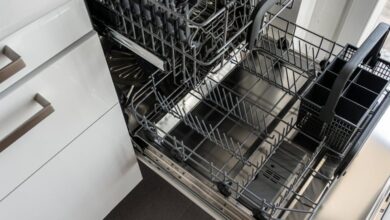Are Energy-efficient Appliances Really Worth it
In today’s world, where sustainability is increasingly becoming a priority, energy-efficient appliances have taken center stage. With rising energy costs and growing concerns about climate change, many homeowners are contemplating whether investing in these appliances is a smart financial choice. From refrigerators to washing machines, energy-efficient options promise lower utility bills and reduced environmental impact. But are they really worth the initial investment?
Understanding Energy Efficiency
Energy-efficient appliances are designed to use less energy than their traditional counterparts. They are often labeled with certifications such as Energy Star, which indicates that they meet strict energy efficiency guidelines set by the U.S. Environmental Protection Agency. These appliances employ advanced technologies, such as improved insulation, efficient motors, and smart sensors, to minimize energy consumption without sacrificing performance.
The Financial Perspective
The most compelling argument for purchasing energy-efficient appliances is the potential for long-term savings. While these appliances may have a higher upfront cost, they typically reduce energy bills significantly over time. For instance, an Energy Star-rated washing machine can use up to 50% less water and energy compared to conventional models. Over the lifespan of the appliance, this can translate to substantial savings.
Moreover, many utility companies offer rebates and incentives for purchasing energy-efficient appliances, which can further offset the initial investment. Homeowners can often recoup their costs within a few years, making these appliances not only a responsible choice but also a financially sound one.
Environmental Impact
Beyond the financial benefits, energy-efficient appliances contribute positively to the environment. Using less energy means that fewer fossil fuels are burned, resulting in decreased greenhouse gas emissions. For environmentally conscious consumers, this is a crucial factor in their purchasing decisions. By opting for energy-efficient models, homeowners can play a part in reducing their carbon footprint and promoting a more sustainable future.
Performance and Technology
Another aspect that makes energy-efficient appliances appealing is their performance. Technological advancements have led to appliances that not only save energy but also outperform older models. For example, modern dishwashers can clean dishes more effectively while using less water and energy. Furthermore, many energy-efficient appliances come equipped with smart technology, allowing users to monitor and control their energy usage through mobile apps. This combination of efficiency and technology enhances overall convenience and functionality.
The Longevity Factor
Energy-efficient appliances are also designed with durability in mind. Many of these models feature better materials and construction, leading to longer lifespans compared to traditional appliances. This longevity can further mitigate the financial impact of the initial investment, as homeowners won’t need to replace them as frequently. A reliable appliance that stands the test of time ultimately adds value to your home and contributes to a more sustainable lifestyle.
Barriers to Adoption
Despite the advantages, some consumers remain hesitant to switch to energy-efficient appliances. The initial cost can be daunting, especially for those on a tight budget. Additionally, there may be a lack of awareness about the long-term savings and environmental benefits associated with these products. Education and access to information can help overcome these barriers, enabling consumers to make informed decisions.
Making the Right Choice
Ultimately, whether energy-efficient appliances are worth it depends on individual circumstances. Homeowners should assess their budgets, energy usage, and environmental values before making a decision. It’s wise to research specific models, compare efficiency ratings, and take advantage of any available rebates. By weighing the upfront costs against potential savings and environmental impact, consumers can determine the best choice for their homes.
Final Thoughts on the Investment
Investing in energy-efficient appliances can be a transformative decision for both your wallet and the planet. While the initial financial outlay may seem intimidating, the long-term savings, environmental benefits, and enhanced performance often outweigh the costs. As technology continues to advance and the demand for sustainable solutions increases, energy-efficient appliances will play an essential role in shaping our homes and communities. Making the switch is not just a choice; it’s a commitment to a greener and more efficient future.







